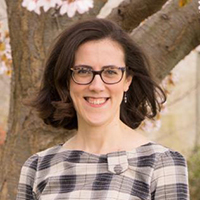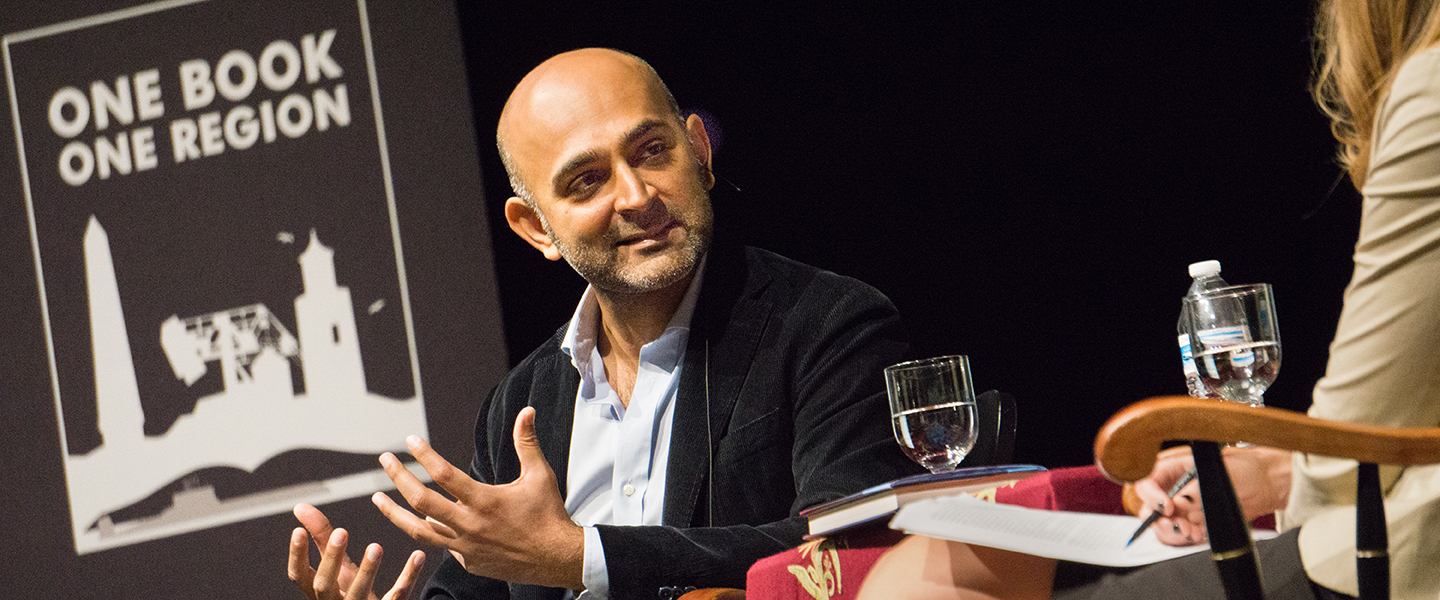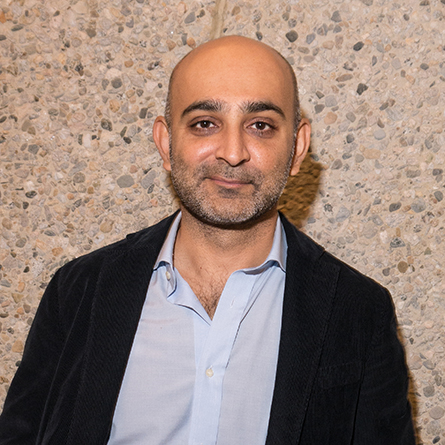
‘An illusion of permanence’
‘Exit West’ author Mohsin Hamid makes the case for migration at One Book One Region
We are all migrants through time, bestselling author Mohsin Hamid told the faculty, staff, students and members of the greater New London community who gathered for the annual One Book One Region event at Connecticut College Sept. 26.
“A human life is a life that is lived through a sequence of moments. Each moment, once it has passed, is gone, and it’s a place we can never return to. That creates a sense of sorrow,” the Exit West author said.
“Migration is something that occurs across time as well as across space.”
By recognizing the feelings of sadness and sorrow that come from our own sense of loss—of childhood, of the way things were, of the sights and sounds we can no longer experience—we, as humans can better empathize with the plight of the 68 million people displaced in the world today, Hamid said.
Exit West, Hamid’s highly acclaimed fourth novel, explores various themes of migration as it follows the fictional Saeed and Nadia who flee a country on the brink of civil war and journey through Europe and North America. The novel was a finalist for the Kirkus Prize and the National Book Critics Circle Award, and was named one of the best books of 2017 by The New York Times Book Review, Time, San Francisco Chronicle, NPR, The Washington Post, Bloomberg and Los Angeles Times, as well as by former President Barack Obama.
“It is a story about young people in love; a grim portrait of civil war; a critique of globalization and Western indifference; a tale of three cities and the refugees of the future; an argument for human resilience; and a meditation on leaving home,” Connecticut College President Katherine Bergeron said in her introductory remarks.
Hamid was born in Pakistan but lived for years in the U.S. and in London before returning to Pakistan to live with his wife and children. He said growing up in different cultures, he tried to blend in wherever he was, “while secretly knowing I was this strange hybrid creature.”
“As I became more comfortable with being this strange hybrid creature, I started to realize that everyone feels a little bit different,” he said.
Throughout the hour-long discussion, moderated by Connecticut College Assistant Professor of English Marie Ostby, Hamid highlighted the commonalities between people across the world and suggested that they be used to create a better future.
“One thing that characterizes the human experience is that everything changes,” he said.
“Yet we are falling victim to an illusion of permanence. People come along and tell us things don’t have to change. … That desire for permanence is very, very dangerous. How can we re-engage with transience in a way that acknowledges it is a frightening and sad situation, but also potentially beautiful and hopeful at the same time?”
It’s important for the world to envision a future that is both plausible and desirable, he said, arguing that it’s implausible to expect humans—who have been moving around the world since they evolved—to stay in one place, and undesirable to maintain geographical inequality.
“There’s this idea that the place where you are born, that inequality must be maintained at all cost—the child born in Mogadishu at war should live and die in that place because that is their lot, while the child born in Milan should get to live in a peaceful place. We have to challenge that inequality,” he said.
“Stuff will change, but stuff can be much better. The food will be better. The music will be better. The dating scene will be better. We will each be better.”
Thousands of people in the greater New London region read Exit West as part of the One Book One Region of Eastern Connecticut initiative, including all Connecticut College first-year students. Hamid’s talk was the culminating event for the program, which included dozens of book discussions, lectures and events all across eastern Connecticut.
This is third year the College has partnered with One Book One Region to bring community members and the College community together to discuss ideas, broaden appreciation of reading and break down barriers among people. Previously, the College hosted Just Mercy author Bryan Stevenson and Homegoing author Yaa Gyasi.
A book signing followed the discussion and a Q&A with the audience. The event also featured remarks by Dean of the College and Faulk Foundation Professor of Psychology Jefferson Singer and Groton Public Library Director Betty Anne Reiter.
Bergeron presented Reiter, who is retiring at the end of October, with a citation for her passion for libraries and the important role she has played in the community for more than 37 years.


